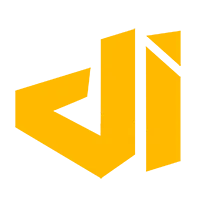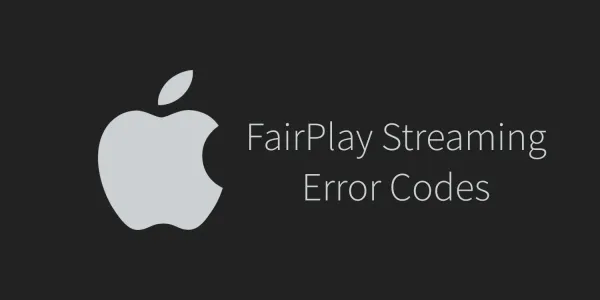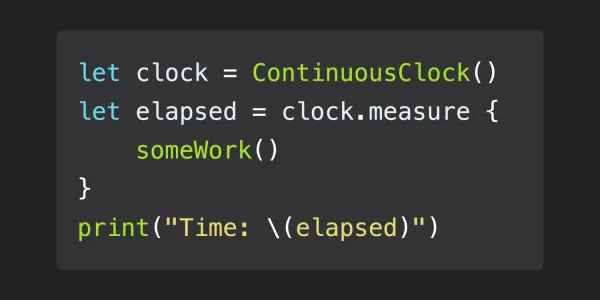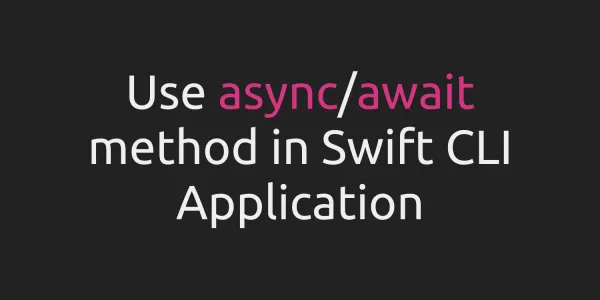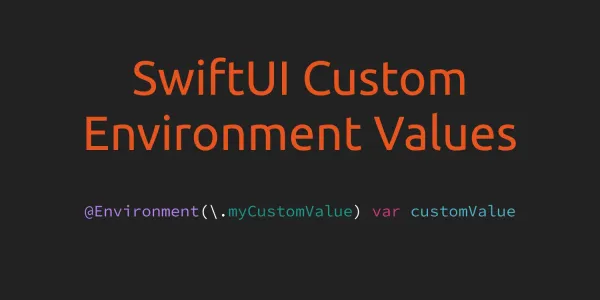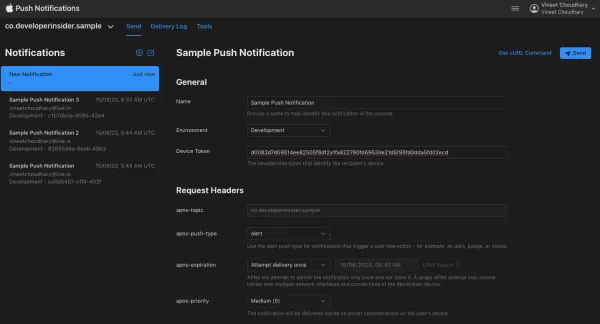Overview
A string literal is a sequence of characters surrounded by double quotes (").
1. Creating and Initializing Strings
1.1 Initializing Strings
let name = "vineeta"
print(name)
- String interpolations are string literals that evaluate any included expressions and convert the results to string form.
- String interpolations give you an easy way to build a string from multiple pieces.
- Wrap each expression in a string interpolation in parentheses, prefixed by a backslash.
let name = "Vineeta"
print( "Welcome, \(name)!")
1.2 Initializing Multiline string
- Multiline string literals are enclosed in three double quotation marks ("""), with each delimiter on its own line.
- Indentation is stripped from each line of a multiline string literal to match the indentation of the closing delimiter.
let banner = """
__,
( o /) _/_
`. , , , , // /
(___)(_(_/_(_ //_ (__
/)
(/
"""
print(banner)
1.3 Initializing an Empty String
var emptyString = ""
var anotherEmptyString = String()
var anotherOneEmptyString: String
let newString = String()
2. Modifying and Comparing Strings
- Strings always have value semantics. Modifying a copy of a string leaves the original unaffected.
2.1 Strings can be combined using the concatenation operator (+).
let name : String = "Vineeta"
let greetMsg = name + " We're glad you're here!"
print(greetMsg)
//prints Vineeta We're glad you're here!
2.2 String Mutability
- String can be modified (or mutated) by assigning it to a variable (in which case it can be modified), or to a constant (in which case it cannot be modified).
var variableString = "Horse"
variableString += " and carriage"
print(variableString)
2.3 Compairing String
- Comparing strings for equality using the equal-to operator (==) or a relational operator (like < or >=).
let cafe1 = "Cafe\u{301}"
let cafe2 = "Café"
print(cafe1 == cafe2)
3. Measuring the Length of a String
- A single string can have greatly differing lengths when measured by its different views.
let name = "Vineeta"
print(name.count) // prints 7
print(name.utf8.count) // prints 7
print(name.utf16.count) // prints 7
print(name.unicodeScalars.count) // prints 7
4. Inspecting a String - isEmpty
let name = "Vineeta"
if name.isEmpty{
print("empty tag ")
}else{
print("Name: \(name)")
}
// prints Name:Vineeta
5. Changing Case
5.1 uppercase
var name = "Vineeta"
print(name.uppercased())
//prints VINEETA
5.2 lowercased
var name = "Vineeta"
print(name.lowercased())
//prints vineeta
6. Finding Substrings
- Any String instance can be bridged to NSString using the type-cast operator (as), and any String instance that originates in Objective-C may use an NSString instance as its storage.
import Foundationframework to your code to use NSString instances.
6.1 hasSuffix
import Foundation
var str = "My name is Vineeta"
if str.hasSuffix("Vineeta"){
print("true")
}else{
print("false")
}
//prints true
6.2 hasPrefix
import Foundation
var str = "My name is Vineeta"
if str.hasPrefix("My"){
print("true")
}else{
print("false")
}
// prints true
7. Finding Characters
7.1 contains
- Returns a Boolean value indicating whether the sequence contains an element that satisfies the given predicate.
let cast = ["Vivek", "vineet", "vineeta", "akshay"]
print(cast.contains("vineet"))
//prints true
print(cast.contains("James"))
//prints false
7.2 contains(where:)
- Returns a Boolean value indicating whether the sequence contains an element that satisfies the given predicate.
let expenses = [21.37, 55.21, 9.32, 10.18, 388.77, 11.41]
let hasBigPurchase = expenses.contains { $0 > 100 }
print(hasBigPurchase)
//prints true
7.3 first(where:)
- Returns the first element of the sequence that satisfies the given predicate.
let numbers = [3, 7, 4, -2, 9, -6, 10, 1]
if let firstNegative = numbers.first(where: { $0 < 0 }) {
print("The first negative number is \(firstNegative).")
}
// prints "The first negative number is -2."
7.4 index(of:)
- Returns the first index where the specified value appears in the collection.
var students = ["Akshay", "vivek", "vineet", "vineeta"]
if let i = students.index(of: "Maxime") {
students[i] = "Max"
}
print(students)
//prints ["Akshay", "vivek", "vineet", "vineeta"]
7.5 index(where:)
- Returns the first index in which an element of the collection satisfies the given predicate.
import Foundation
let students = ["Kofi", "Abena", "Peter", "Kweku", "Akosua"]
if let i = students.index(where: { $0.hasPrefix("A") }) {
print("\(students[i]) starts with 'A'!")
}
// prints Abena starts with 'A'!
7.6 max()
- Returns the maximum element in the sequence.
let heights = [67.5, 65.7, 64.3, 61.1, 58.5, 60.3, 64.9]
let greatestHeight = heights.max()
print(greatestHeight ?? "nothing in there")
//prints 67.5
7.7 max(by:)
- Returns the maximum element in the sequence, using the given predicate as the comparison between elements.
let hues = ["Heliotrope": 296, "Coral": 16, "Aquamarine": 156]
let greatestHue = hues.max { a, b in a.value < b.value }
print(greatestHue ?? "nothing")
//prints (key: "Heliotrope", value: 296)
8. Appending Strings and Characters
8.1 append(_:)
- Adds an element to the end of the collection.
var numbers = [1, 2, 3, 4, 5]
numbers.append(100)
print(numbers)
//prints [1, 2, 3, 4, 5, 100]
8.2 append(_:)
- Appends the given string to this string.
var name = "rachel"
name.append("ross")
print(name)
//prints rachelross
9. Inserting Characters
9.1 insert(_:at:)
- Inserts a new character at the specified position.
var name = "rachel"
name.insert("a", at:name.startIndex)
print(name)
//prints arachelross
9.2 insert(_:at:)
- Inserts a new element into the collection at the specified position.
numbersArray.insert(100, at: 3)
numbersArray.insert(200, at: numbersArray.endIndex)
print(numbersArray)
//prints [1, 2, 100, 3, 4, 5, 200]
10. Removing Substrings
10.1 remove(at:)
- Removes and returns the character at the specified position.
var nonempty = "non-empty"
if let i = nonempty.characters.index(of: "-") {
nonempty.remove(at: i)
}
print(nonempty)
//prints nonempty
10.2 remove(at:)
- Removes and returns the element at the specified position.
var measurements = [1.2, 1.5, 2.9, 1.2, 1.6]
let removed = measurements.remove(at: 2)
print(measurements)
// Prints "[1.2, 1.5, 1.2, 1.6]"
10.3 removeAll(keepingCapacity:)
- Replaces this string with the empty string.
var measurements = [1.2, 1.5, 2.9, 1.2, 1.6]
let removeAll = measurements.removeAll()
print(measurements)
//prints []
10.4 removeFirst()
- Removes and returns the first element of the collection.
var bugs = ["Aphid", "Bumblebee", "Cicada", "Damselfly", "Earwig"]
bugs.removeFirst()
print(bugs)
// Prints "["Bumblebee", "Cicada", "Damselfly", "Earwig"]"
10.5 removeFirst(_:)
- Removes the specified number of elements from the beginning of the collection.
var bugs = ["Aphid", "Bumblebee", "Cicada", "Damselfly", "Earwig"]
bugs.removeFirst(3)
print(bugs)
// Prints "["Damselfly", "Earwig"]"
10.6 removeLast()
- Removes and returns the last element of the collection.
var bugs = ["Aphid", "Bumblebee", "Cicada", "Damselfly", "Earwig"]
bugs.removeLast()
print(bugs)
//prints ["Aphid", "Bumblebee", "Cicada", "Damselfly"]
10.7 removeLast(_:)
- Removes the specified number of elements from the end of the collection.
var bugs = ["Aphid", "Bumblebee", "Cicada", "Damselfly", "Earwig"]
bugs.removeLast(2)
print(bugs)
//prints ["Aphid", "Bumblebee"]
10.8 removeSubrange(_:)
- Removes the elements in the specified subrange from the collection.
var measurements = [1.2, 1.5, 2.9, 1.2, 1.6]
measurements.removeSubrange(1..<4)
print(measurements)
//prints [1.2, 1.6]
10.9 removeSubrange(_:)
- Removes the elements in the specified subrange from the collection.
var measurements = [1.2, 1.5, 2.9, 1.2, 1.5]
measurements.removeSubrange(1..<4)
print(measurements)
// Prints "[1.2, 1.5]"
10.10 filter(_:)
- Returns a new collection of the same type containing, in order, the elements of the original collection that satisfy the given predicate.
let cast = ["Vivien", "Marlon", "Kim", "Karl"]
let shortNames = cast.filter { $0.count < 5 }
print(shortNames)
// Prints "["Kim", "Karl"]"
11. Getting Characters and Bytes
11.1 subscript(_:)
- Accesses the character at the given position.
let greeting = "Hello, friend!"
if let i = greeting.characters.index(where: { $0 >= "A" && $0 <= "Z" }) {
print("First capital letter: \(greeting[i])")
}
//prints First capital letter: H
11.2 first
- The first element of the collection.
let numbersArr = [10, 20, 30, 40, 50]
if let firstNumber = numbersArr.first {
print(firstNumber)
}
//prints 10
11.3 last
- The last element of the collection.
let numbersArr = [10, 20, 30, 40, 50]
if let firstNumber = numbersArr.last {
print(firstNumber)
}
//prints 50
12. Related String Types
12.1 Substring
- A slice of a string.
let greeting = "Hi there! It's nice to meet you! 👋"
let endOfSentence = greeting.index(of: "!")!
let firstSentence = greeting[...endOfSentence]
print(firstSentence)
// firstSentence == "Hi there!"
12.2 Converting a Substring to a String
- This example defines a rawData string with some unstructured data, and then uses the string’s prefix(while:) method to create a substring of the numeric prefix.
let rawInput = "126 a.b 22219 zzzzzz"
let numericPrefix = rawInput.prefix(while: { "0"..."9" ~= $0 })
print(numericPrefix)
//prints 126
13. Describing a String
13.1 description
let rawInput = "126 a.b 22219 zzzzzz"
print(rawInput.description)
// prints 126 a.b 22219 zzzzzz
13.2 debugDescription
- A representation of the string that is suitable for debugging.
let rawInput = "126 a.b 22219 zzzzzz"
print(rawInput.debugDescription)
// prints "126 a.b 22219 zzzzzz"
13.3 customMirror
- A mirror that reflects the String instance.
let rawInput = "126 a.b 22219 zzzzzz"
print(rawInput.customMirror)
// prints Mirror for String
13.4 customPlaygroundQuickLook
let rawInput = "126 a.b 22219 zzzzzz"
print(rawInput.customPlaygroundQuickLook)
// prints text("126 a.b 22219 zzzzzz")
13.5 hashValue
- The string’s hash value.
let rawInput = "126 a.b 22219 zzzzzz"
print(rawInput.hashValue)
// prints 9200157961725904825
14. Creating a Range Expression
14.1 ..<(_:)
- Returns a partial range up to, but not including, its upper bound.
let numbers = [10, 20, 30, 40, 50, 60, 70]
print(numbers[..<3])
//prints [10, 20, 30]
14.2 ...(_:)
- Returns a partial range extending upward from a lower bound.
let numbers = [10, 20, 30, 40, 50, 60, 70]
print(numbers[3...])
//prints [40, 50, 60, 70]
14.3 ...(_:)
- Returns a partial range up to, and including, its upper bound.
let numbers = [10, 20, 30, 40, 50, 60, 70]
print(numbers[...3])
//prints [10, 20, 30, 40]
15. Manipulating Indices
15.1 startIndex
- The position of the first character in a nonempty string.
let numbers = [10, 20, 30, 40, 50, 60, 70]
print(numbers.startIndex)
//prints 0
15.2 endIndex
- A string’s “past the end” position—that is, the position one greater than the last valid subscript argument.
let numbers = [10, 20, 30, 40, 50, 60, 70]
print(numbers.endIndex)
//prints 7
15.3 index(after:)
- Returns the position immediately after the given index.
let numbers = [10, 20, 30, 40, 50, 60, 70]
print(numbers.index(after: 3))
//prints 4
15.4 index(_:offsetBy:)
- Returns an index that is the specified distance from the given index.
let s = "Swift"
let i = s.index(s.startIndex, offsetBy: 4)
print(s[i])
// prints t
15.5 index(_:offsetBy:limitedBy:)
- Returns an index that is the specified distance from the given index, unless that distance is beyond a given limiting index.
let s = "Swift"
if let i = s.index(s.startIndex, offsetBy: 4, limitedBy: s.endIndex) {
print(s[i])
}
// prints "t"
15.6 index(before:)
let numbers = [10, 20, 30, 40, 50, 60, 70]
print(numbers.index(before: 3))
//prints 2
15.7 distance(from:to:)
- Returns the distance between two indices.
let numbers = [10, 20, 30, 40, 50, 60, 70]
let numDistance = numbers.distance(from: 0, to: 3)
print(numDistance)
//prints 3
16. Iterating over a String's Characters
16.1 forEach(_:)
- Calls the given closure on each element in the sequence in the same order as a for-in loop.
let numberWords = ["one", "two", "three"]
for word in numberWords {
print(word)
}
// prints "one"
// prints "two"
// prints "three"
numberWords.forEach { word in
print(word)
}
// prints "one"
// prints "two"
// prints "three"
16.2 enumerated()
- Returns a sequence of pairs (n, x), where n represents a consecutive integer starting at zero, and x represents an element of the sequence.
for (n, c) in "Swift".enumerated() {
print("\(n): '\(c)'")
}
//prints 0: 'S'
//prints 1: 'w'
//prints 2: 'i'
//prints 3: 'f'
//prints 4: 't'
17. Sorting a String's Characters
17.1 sorted()
- Returns the elements of the sequence, sorted.
let students: Set = ["Kofi", "Abena", "Peter", "Kweku", "Akosua"]
let sortedStudents = students.sorted()
print(sortedStudents)
//prints ["Abena", "Akosua", "Kofi", "Kweku", "Peter"]
17.2 sorted(by:)
- Returns the elements of the sequence, sorted using the given predicate as the comparison between elements.
let students: Set = ["Kofi", "Abena", "Peter", "Kweku", "Akosua"]
let descendingStudents = students.sorted(by: >)
print(descendingStudents)
//prints ["Peter", "Kweku", "Kofi", "Akosua", "Abena"]
17.3 reversed()
- Returns a view presenting the elements of the collection in reverse order.
let word = "Backwards"
for char in word.reversed() {
print(char, terminator: "")
}
//prints sdrawkcaB
18. Working with String Views
18.1 characters
- A view of the string’s contents as a collection of characters.
let word = "Backwards"
for char in word.characters{
print(char)
}
//prints B
//a
//c
//k
//w
//a
//r
//d
//s
18.2 init(_:)
- Creates a string from the given character view
let poem = """
'Twas brillig, and the slithy toves /
Did gyre and gimbal in the wabe: /
All mimsy were the borogoves /
And the mome raths outgrabe.
"""
let excerpt = String(poem.characters.prefix(22)) + "..."
print(excerpt)
// Prints "'Twas brillig, and the..."
18.3 withMutableCharacters(_:)
- Applies the given closure to a mutable view of the string’s characters.
var str = "All this happened, more or less."
let afterSpace = str.withMutableCharacters { chars -> String.CharacterView in
if let i = chars.index(of: " ") {
let result = chars[chars.index(after: i)...]
chars.removeSubrange(i...)
return result
}
return String.CharacterView()
}
print(str)
// Prints "All"
print(String(afterSpace))
// Prints "this happened, more or less."
18.4 unicodeScalars
- The string’s value represented as a collection of Unicode scalar values.
let word = "Backwards"
for char in word.unicodeScalars{
print(char)
}
//prints B
// a
// c
// k
// w
// a
// r
// d
// s
18.5 init(_:)
- Creates a string corresponding to the given collection of Unicode scalars.
let picnicGuest = "Deserving porcupine"
if let i = picnicGuest.unicodeScalars.index(of: " ") {
let adjective = String(picnicGuest.unicodeScalars[..<i])
print(adjective)
}
//prints Deserving
18.6 utf16
- A
UTF-16encoding of self.
let picnicGuest = "Deserving porcupine"
print(picnicGuest.utf16.count)
//prints 19
18.7 utf8
- A UTF-8 encoding of self.
let picnicGuest = "Deserving porcupine"
print(picnicGuest.utf8.count)
//prints 19
19. Transforming a String's Characters
19.1 map(_:)
- Returns an array containing the results of mapping the given closure over the sequence’s elements.
let cast = ["Vivien", "Marlon", "Kim", "Karl"]
let lowercaseNames = cast.map { print($0.lowercased()) }
//prints vivien
// marlon
// kim
// karl
let letterCounts = cast.map { print($0.count) }
//prints 6
// 6
// 3
// 4
19.2 reduce(::)
- Returns the result of combining the elements of the sequence using the given closure.
let numbers = [1, 2, 3, 4]
let numberSum = print(numbers.reduce(0, { x, y in
x + y
}))
//prints 10
20. Getting C Strings - utf8CString
- A contiguously stored null-terminated UTF-8 representation of the string.
let s = "Hello!"
let bytes = s.utf8CString
print(bytes)
// Prints "[72, 101, 108, 108, 111, 33, 0]"
Next - Operator Declarations by Example
